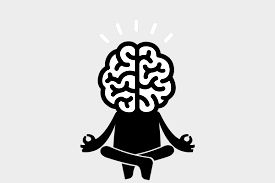The Power of Consistency: Why Small Daily Habits Drive Big Brain Gains
- elissajennings
- Jul 30
- 4 min read

In this blog:
Introduction: Why Consistency is the Foundation of Brain Health
We live in a world obsessed with quick fixes. But when it comes to improving brain performance, reducing fatigue, or building focus, short-term efforts rarely create lasting change. True transformation comes from the power of consistency.
Consistency is not about perfection. It’s about showing up daily, even in small ways. From cognitive exercises and nutrition to stress management and sleep, every micro-action you take compounds over time to create a stronger, sharper and more resilient brain.
In this article, we’ll explore the neuroscience behind consistency, how small habits rewire your brain, and why launching a simple 7-day challenge can ignite long-term behavioural change.
1. The Science Behind the Power of Consistency
Consistency forms the foundation of neural rewiring. Every time you repeat an action, you strengthen the synaptic pathways associated with that behaviour. This is how habits are built and how performance is optimised.
When it comes to brain health, consistency affects:
Neuroplasticity: The brain’s ability to reorganise itself by forming new connections. Daily practice makes neural circuits more efficient.
Cognitive resilience: Regular habits reduce allostatic load (the cumulative burden of stress) and increase your brain’s ability to recover.
Neurochemical balance: Habits like exercise, sleep hygiene and mindfulness stabilise neurotransmitters like dopamine, serotonin and GABA, which influence mood and attention.
Research: A study in Nature Neuroscience found that consistency in cognitive training, rather than intensity, predicted sustained improvements in working memory and attention (Klingberg, 2010).
2. Why a 7-Day Challenge Works: Momentum Over Motivation
Starting a 7-day consistency challenge is one of the most effective ways to break inertia and establish a new brain-healthy routine. Unlike open-ended goals, time-bound commitments reduce decision fatigue and create accountability.
Key reasons it works:
Low barrier to entry: Seven days is short enough to feel achievable, but long enough to produce meaningful changes in mood, energy, and mental clarity.
Habit stacking: Completing one action daily increases your likelihood of repeating it and building momentum.
Identity shift: When you prove to yourself that you can stay consistent, even for a week, you begin to rewire your self-perception from someone who tries to someone who follows through.
Examples of daily 7-day habits:
Drink a brain-boosting smoothie each morning
Complete one 5-minute cognitive test or journaling session
Swap your afternoon caffeine for hydration and sunlight
Turn off screens 45 minutes before sleep
Take a daily nootropic shot to enhance focus and support neuro-function
Research: Studies show it takes an average of 66 days to form a habit, but the initial 7–10 days are critical for long-term adherence (Lally et al., 2010). These first few days are when neural pathways begin to consolidate and self-belief begins to shift.
3. Compounding Gains: How Daily Habits Rewire the Brain
Consistency does more than build routines. It changes the structure and function of your brain over time.
Repeated small actions lead to:
Improved executive function: Daily planning, decision-making, or reflective journaling enhances the prefrontal cortex.
Stronger memory formation: Consistent learning or language practice stimulates hippo-campal neurogenesis.
Reduced brain fog and fatigue: Regular nutrition, sleep and hydration habits support mitochondrial function and lower inflammation.
Case Study:
Athletes who took part in a daily nootropic routine (including CONKA) during a 4-week trial reported measurable improvements in reaction time, mood stability and post-training recovery. The only requirement? Show up daily, regardless of schedule.
Research: Habits involving physical activity and brain training are associated with increased grey matter density in regions linked to attention, motor control and cognitive flexibility (Draganski et al., 2006).
4. Build Your Own 7-Day Brain Health Challenge
Whether you're a high performer or just looking to feel more switched on, a short challenge can jumpstart your routine. Here’s a simple framework to help you commit.
The 7-Day Consistency Challenge Framework:
Choose 1–2 brain healthy habits to repeat daily
Examples: breathwork, daily walk, screen-free evening, CONKA shot, morning journaling
Set a daily time anchor
Link the habit to an existing activity (e.g. right after brushing teeth or before lunch)
Track your progress
Use a paper tracker, notes app, or wellness app like CONKA to monitor completion
Stay accountable
Share your challenge with a friend, coach or community group
Reflect at the end
Ask: How did I feel before vs after? What changed? What will I keep?
You can also offer rewards or gamify the process. For example, CONKA community members earn tokens for daily completions that can be redeemed for merch or exclusive content.
Bonus Tip: Combine your challenge with nootropic support to boost cognitive energy, mental focus and reduce friction when building new habits. Many users report that starting their day with a CONKA shot helps them stay consistent and clear-headed.
5. Consistency Over Perfection: Long-Term Mindset Shifts
The biggest mistake people make with brain optimisation is going all-in for a week, then dropping off. Long-term results come from low-friction, high-frequency actions.
Think:
5 minutes of daily breath work > 1 hour once a month
Daily walk + hydration > intense but unsustainable gym sessions
Consistent use of brain-supportive supplements > sporadic intake
The power of consistency lies in:
Reduced resistance: You no longer debate whether to do the thing. You just do it.
Identity reinforcement: Each repetition affirms your identity as someone who invests in their brain.
Exponential gains: Over time, consistent inputs lead to outsized returns in energy, productivity, and clarity.
Quote: “We are what we repeatedly do. Excellence, then, is not an act but a habit.” – Aristotle
You May Also Enjoy:




Comments